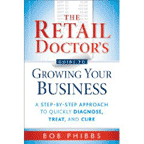Updated November 7, 2024
For most retailers, cash flow at the end of a year is overwhelming. With ongoing supply chain disruptions and limited occupancy, it's easy to miss the basics of December financial management.
In December, different financial issues arise than in November - it's the time of year that your cash flow peaks, but several other season-specific problems stores face crop up.
Seven December concerns that affect your end-of-year cash flow:
- Double payroll
- Double shipments
- Extended demands for curbside and online fulfillment.
- Use up more supplies
- New employee retail sales training
- The bulk of your year in sales
- Theft (internal and external)
The holiday season provides your business a much-needed influx of cash, and cash flow worries seem to disappear. Nevertheless, the end of the year or first week of January is a prudent time for the savvy retailer to prepare for some upcoming bills.
Don’t forget these items while you are hopefully counting your profits...
The Landlord
Most retailers have triple-net leases on their locations. As such, they are responsible for their share of increased property taxes, maintenance costs for common areas, and building insurance. It is a rare year when these costs do not increase. Most landlords - also looking to ease their cash flow issues - will mail these assessments and bills at this time of year.
The Employees
Many companies, in the interest of easing their financial problems at the end of the year, offer year-end cash bonuses payable in the first quarter. Now is the best time to set aside funds for these payments.
The I.R.S.
Though most retailers have made quarterly estimated payments, it is time to completely pay your tax bill. Penalties are significant and should be avoided at all costs. In addition, filing an extension can also become burdensome as the interest rate is also excessive. The I.R.S. will get its money one way or another; paying them on time is best.
The Owner(s)
Similarly, S-corporation owners should use current cash flow to fund their retirement plans to minimize their tax exposure. Distributions to active or silent partners should be made as soon as possible, as all parties are responsible for paying their fair share of taxes on time.
The Business, Itself
It is tempting to “take the money and run,” as they say, but January is a fresh start for every business. As such, it is the right time to critically examine your location's infrastructure.
Are there looming maintenance and cosmetic issues that should be addressed? Fresh paint and patches are small, but is it time for a new roof, new fixtures, or new technology?
Resolving these problems now, when money is not tight, will invariably save money over the long term. In addition to refreshing the look of your store, it will also avoid potential accidents and help eliminate workers comp or insurance claims that could further impede future cash flow.
Be proactive in your thinking for next year; get ahead of things so that you don’t begin the year in a mess and disarray behind the 8-ball.
What to do to be proactive for the new year:
- Plot out fixed expenses; set aside payments
- Pay all vendors upfront when possible
- Keep after fluctuating costs like utilities
- Offer bonuses in the form of products, not cash
- Don’t keep your holiday staff on any longer than necessary
- Plan next year’s holiday purchases by seeing what did not sell this year and cutting back on orders for next year.

See also, How To Improve Your Retail Sales During December
In Sum
While paying bills is never fun, there is no alternative - every item mentioned above has benefitted your business and contributed to your success.
In short, you are responsible for using your profits wisely and meeting your obligations.

